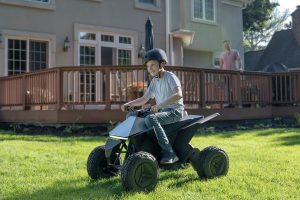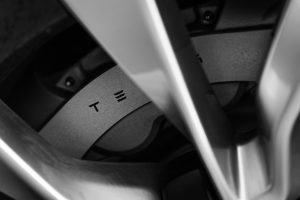- 💡 Two-thirds of drivers are afraid of self-driving cars, with 24% uncertain about their feelings.
- 📊 Data shows a significant increase in fear of self-driving cars from 2021 to 2023.
- 🚗 No fully self-driving cars are currently available on the market despite common consumer misconceptions.
- 🤔 22% of Americans expect driver assistance systems to fully drive the car due to misleading names like ProPILOT and Autopilot.
- 🔍 More efforts are needed to educate the public about the capabilities and limitations of vehicle technologies.
- 🤝 AAA seeks to collaborate with automakers to establish consistency in terminology and increase consumer trust in future vehicles.
Self-driving cars have long been hailed as the future of transportation, promising increased safety, efficiency, and convenience on the roads. However, recent studies reveal a significant hurdle on the path to widespread adoption: fear. According to data from the American Automobile Association (AAA), two-thirds of drivers harbor apprehensions about self-driving cars, with an additional 24% uncertain about their stance. In this blog post, we delve into the reasons behind this fear, the implications for the future of autonomous vehicles, and potential strategies for building trust in this emerging technology.

Unpacking the Fear: Why Are People Afraid?
The fear of self-driving cars is multifaceted, stemming from various concerns and misconceptions. One major factor is the lack of understanding about the current state of autonomous technology. Despite widespread media coverage and industry hype, it’s crucial to recognize that fully self-driving cars are not yet commercially available. Many consumers mistakenly believe that these vehicles exist and are capable of navigating any situation autonomously, leading to apprehension and distrust.
The Evolution of Fear: Tracking Attitudinal Shifts
Data from the AAA study reveals a notable trend: a steady increase in fear of self-driving cars from 2021 to 2023. While 54% of respondents expressed fear in 2021, this figure rose to 68% by 2023 before slightly decreasing to 66% in 2024. This upward trajectory underscores the importance of addressing public concerns and dispelling myths surrounding autonomous vehicles.
Bridging the Gap: Education and Awareness
To alleviate fear and build trust in self-driving cars, comprehensive education and awareness initiatives are essential. Consumers need accurate information about the capabilities and limitations of autonomous technology, as well as clear distinctions between various driver assistance systems. Misleading names such as ProPILOT and Autopilot contribute to confusion, with 22% of Americans expecting these systems to fully drive the car.
Towards a Trusted Future: Collaborative Efforts
In response to these challenges, organizations like AAA are taking proactive steps to collaborate with automakers and establish consistency in terminology. By working together, industry stakeholders can streamline communication, enhance transparency, and ultimately increase consumer trust in future vehicles. Building a trusted ecosystem for autonomous technology requires collective effort and ongoing commitment to education and innovation.





